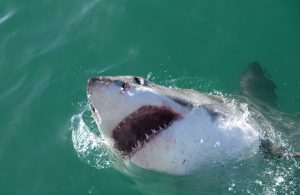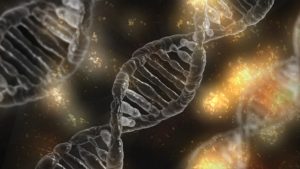There are very few things in this world that are more terrifying to humans than sharks are. After all, with their intelligence, size, agility and ideal anatomical features, they really are the perfect predators. They have dominated the ocean for over 400 million years, instilling fear in other animals and humans alike. But what if these fierce hunters actually hold the key to surviving some of our deadliest diseases?

A great white shark in Dyer Island. Courtesy of Wikimedia Commons (Olga Ernst).
Source: https://commons.wikimedia.org/wiki/File:Great_white_shark_Dyer_Island.jpg
Recently, scientists at the Save Our Seas Foundation Shark Research Center characterized the full genome of a great white shark, essentially the genetic blueprint that maps the structure and function of the animal. Their studies revealed that sharks are just as resilient on the inside as they look on the outside.
Their research, published in the Proceedings of the National Academy of Sciences of the United States, found that sharks can repair and alter their DNA, the material in our bodies that carry genetic information, in order to fight diseases and heal wounds efficiently as they age. Their built-in resistance to DNA damage increases their genetic stability and health, which is how they are able to thrive for millions of years.

A 3D-model of DNA strands.
Courtesy of Flickr Commons (Helen Carmody).
Source: https://flic.kr/p/R8JhxZ
Healing progression of a lemon shark over a three year period. Courtesy of YouTube (Ramon Llaneza Technical Diving). Source: https://www.youtube.com/watch?v=-lrn5AHipp8.
Our cells, the building blocks of our body, along with our DNA, which provide the layout for the cells to function, breakdown as we age. This damage, termed genomic instability, is what makes humans so vulnerable to serious age-related diseases like cancer.
By studying the shark genome, the scientists hope to understand the mechanisms behind how these animals are able to preserve its stability, information that may potentially help us fight cancer and other serious human diseases. It may also help improve current flesh-healing treatments.
There is still so much to learn from sharks, both from a biomedical perspective and from an environmental perspective. Hopefully, this newfound research will heighten our appreciation for these evolutionary superheroes instead of feeling the need kill them.
– Justine Law
